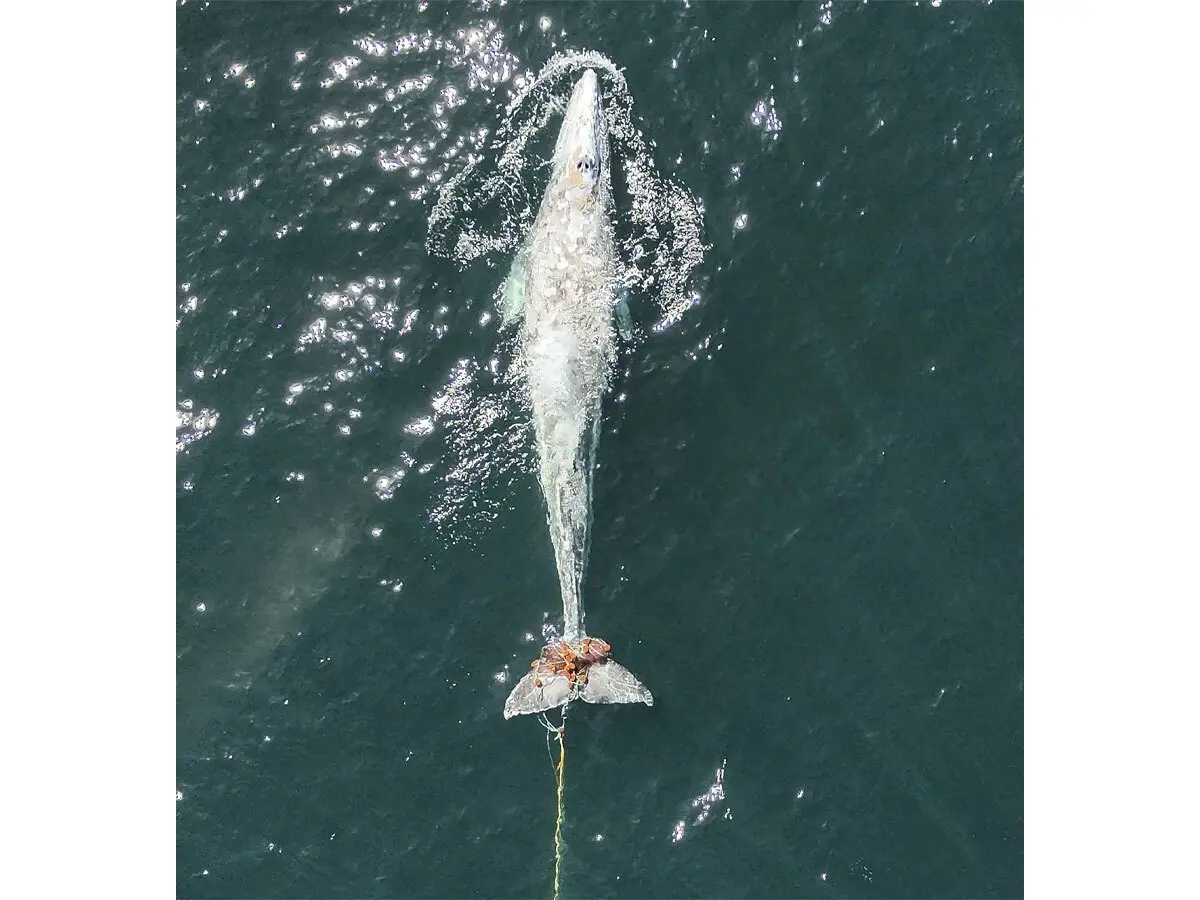Copyright Joliet, IL Patch

The number of entanglements reached a 17-year high, according to the National Oceanic and Atmospheric Administration. SAN DIEGO, CA — The number of whales entangled in fishing lines and nets is spiking off the California coast just as government funding for protecting marine life faces major cuts, according to a recent report. The number of large whales that were entangled in fishing gear or marine debris along U.S. coasts rose sharply in 2024, with most of the incidents happening off the coast of the Golden State, a report by the National Oceanic and Atmospheric Administration found. There were 95 confirmed whale entanglements nationally in 2024, compared to 64 in 2023, according to the report. That number is also significantly higher than the 17-year annual average of 71.4 entanglements. The majority of the entanglements, 71%, happened off the coast of California, Massachusetts, Alaska and Hawaii, the report said. Of those, 25% occurred off the California coast, primarily in the Monterey Bay Area. Most cases — 77 out of 95 — involved threatened or endangered humpback whales. Humpback whales continued to be the most frequently reported entangled large whale species, and represent more than 70% of all confirmed large whale entanglements since 2007, according to the report. "The largest animals on the planet don't stand a chance when there are too many fishing lines in times and places that are important to whales," Gib Brogan, Oceana's senior campaign director to protect North Atlantic right whales, told Oceanographic. "These numbers represent more than dead whales, they showcase needless suffering," Brogan said. "This report paints a clear picture: Our current safeguards are not enough." NOAA is required to publish the numbers under the federal Marine Mammal Protection Act. The report said about half of the entanglements, 48%, were directly attributed to commercial or recreational fisheries. NOAA officials said they are still analyzing the data to understand what factors contributed to the increase and whether the increase is temporary or part of a longer-term trend. "These findings underscore an urgent need for coordinated action," Kathi George, director of Cetacean Conservation Biology at The Marine Mammal Center, said in a statement sent to Patch. The Sausalito-based organization has rescued more than 27,000 marine mammals along 600 miles of California coastline and the Big Island of Hawai'i since 1975. Giancarlo Rulli, a spokesperson with The Marine Mammal Center, said the number of responses across California by partners were higher than normal in 2024 "At The Marine Mammal Center, we believe that progress comes through partnership: between federal, state, and tribal agencies; fishers; researchers; and conservation organizations," George said "Together, we can apply the best available science to reduce the risk of entanglement." Also see: Something Alarming Is Happening To Gray Whales Off California's Coast NOAA's report comes at a time, however, when the agency faces budget cuts from the Trump administration and while draft legislation in Congress could weaken the Marine Mammal Protection Act. The agency investigates and enforces laws protecting marine life, and many in the department are furloughed during the shutdown. "When we think about the solution to end species endangerment and protect biodiversity, we need NOAA at all stages to have robust support to be able to do that," Dave Bader, a marine biologist at the Marine Mammal Care Center Los Angeles, told The Orange County Register. "From the regulatory side, to the development side, to the enforcement side, all of those right now could use support and strengthening and we're seeing that get weakened." Also see: Something 'Unprecedented' Is Happening With Orcas Off The CA Coast Whales unable to free themselves can carry the entanglement for days, months or even years, according to NOAA. Entanglements can interfere with swimming, feeding, breathing and other vital functions. Severe entanglements can cause injuries that result in death from infection, starvation, amputation, blood loss, strangulation or drowning. In fact, entanglements and vessel strikes are two main causes of whale deaths, according to NOAA. "To have a healthy ocean, we need a healthy NOAA that's fully funded and staffed," George said. "We stand ready here at The Marine Mammal Center to both support and lead collaborative efforts — whether through response, public education, or applied research — so that whales not only survive, but thrive in our shared ocean." To report an entangled whale in California, call 877-SOS-WHALe or 877-767-9425.



